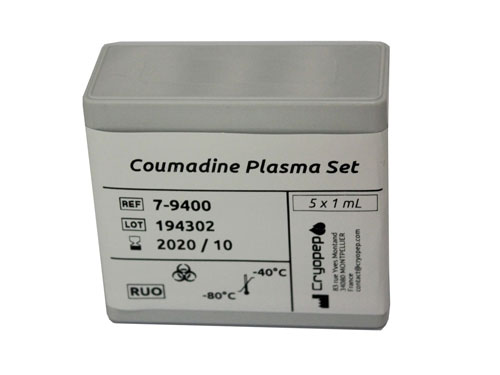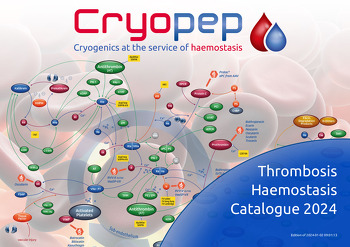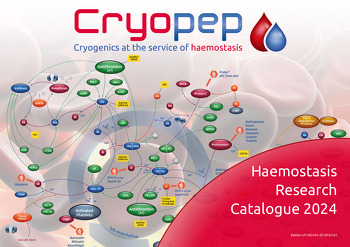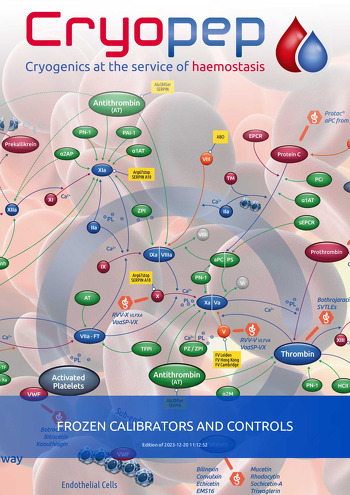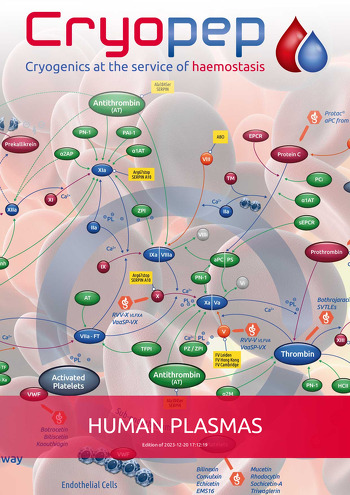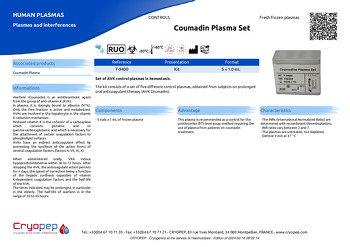Warfarin (Coumadin) is an antithrombotic agent from the group of anti-vitamin K (AVK).
In plasma, it is strongly bound to albumin (97%). Only the free fraction is active and metabolized. AVKs are involved in the hepatocyte in the vitamin K reduction mechanism.
Reduced vitamin K is the cofactor of a carboxylase which converts glutamic acid to gamma-carboxyglutamic acid which is necessary for the attachment of certain coagulation factors to phospholipid surfaces.
AVKs have an indirect anticoagulant effect by preventing the synthesis of the active forms of several coagulation factors (factors II, VII, IX, X).
When administered orally, VKA induce hypoprothrombinemia within 36 to 72 hours. After stopping the AVK, the anticoagulant action persists for 4 days, the speed of correction being a function of the hepatic synthesis capacities of vitamin K-dependent coagulation factors and the half-life of the AVK.
The times indicated may be prolonged, in particular in the elderly. The half-life of warfarin is in the range of 35 to 45 hours.
- The INRs (International Normalized Ratio) are determined with recombinant thromboplastins.
- INR rates vary between 2 and 7.
- The plasmas are untreated, not depleted.
- Defrost 4 min at 37 ° C
This plasma is recommended as a control for the prothrombin (PT) level assay method requiring the use of plasma from patients on coumadin treatment.
- 5 vials x 1 mL of frozen plasma








